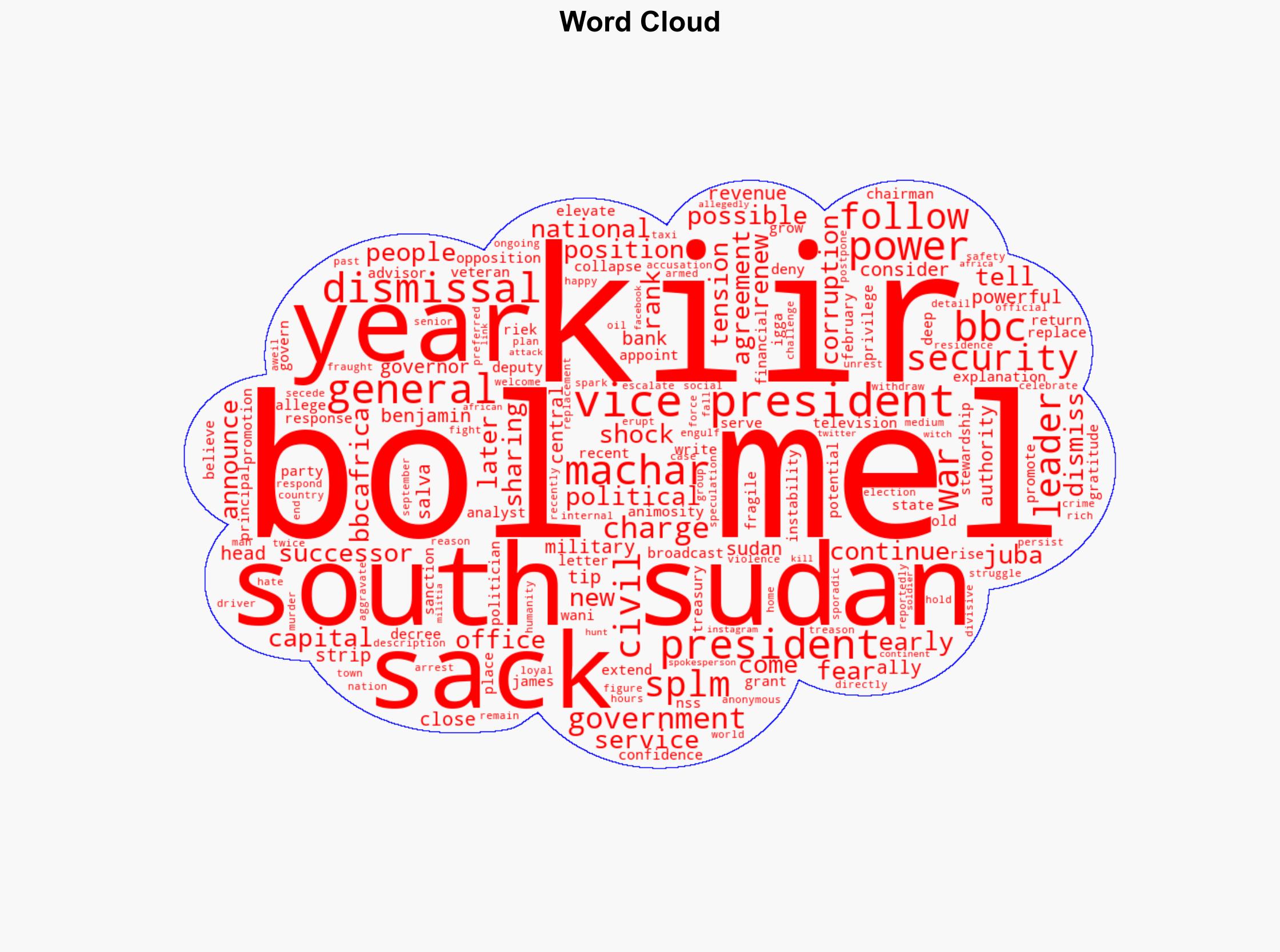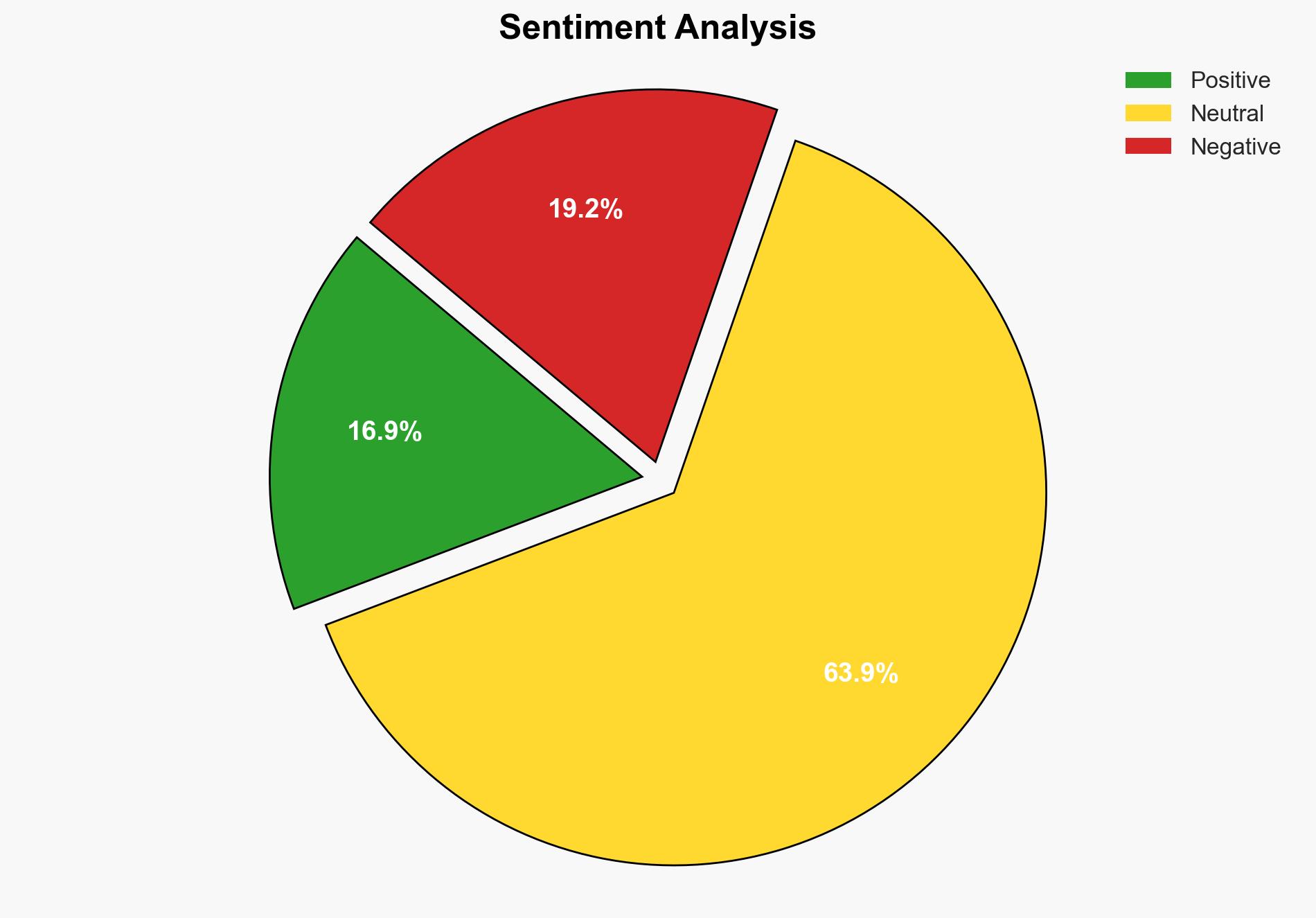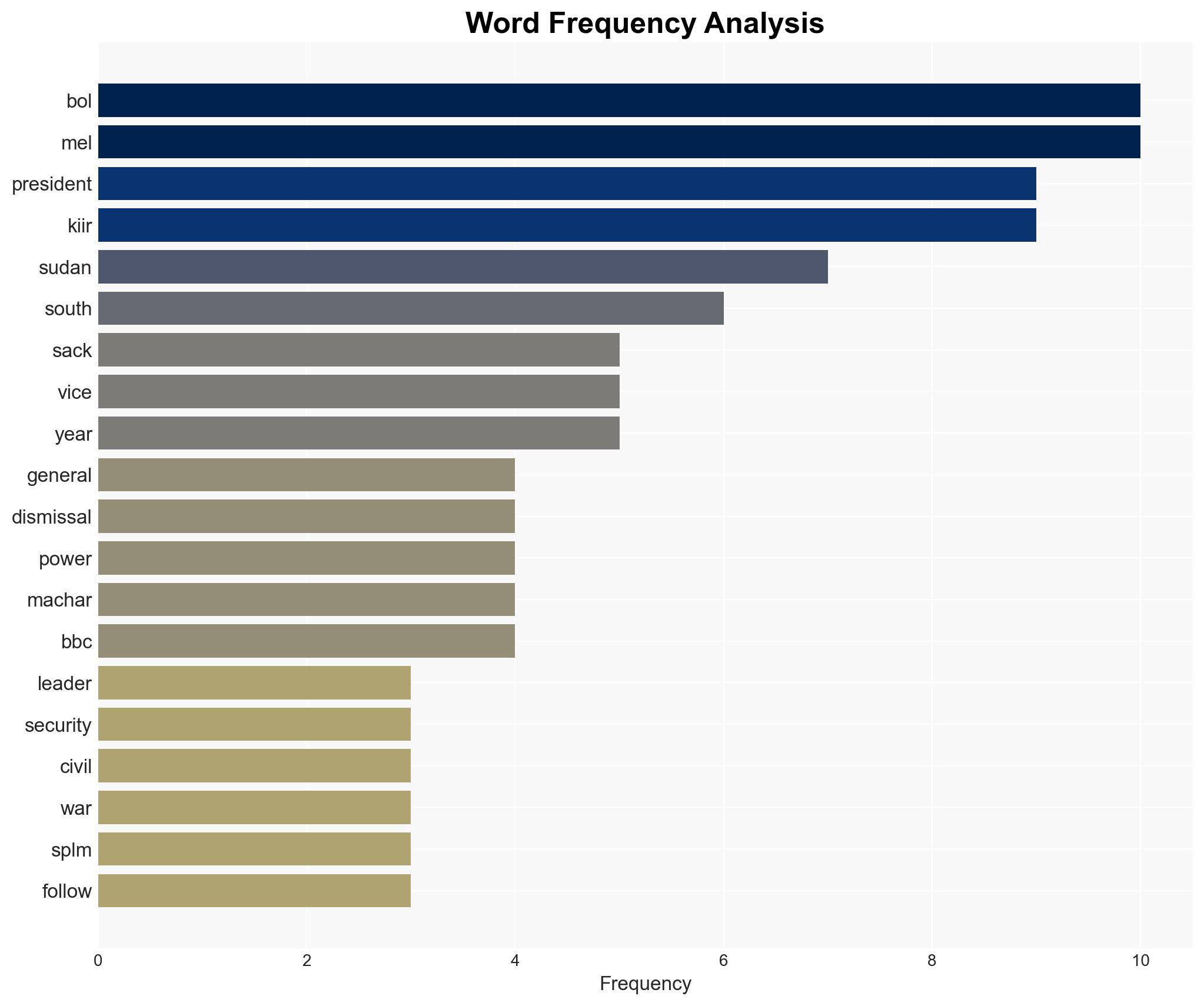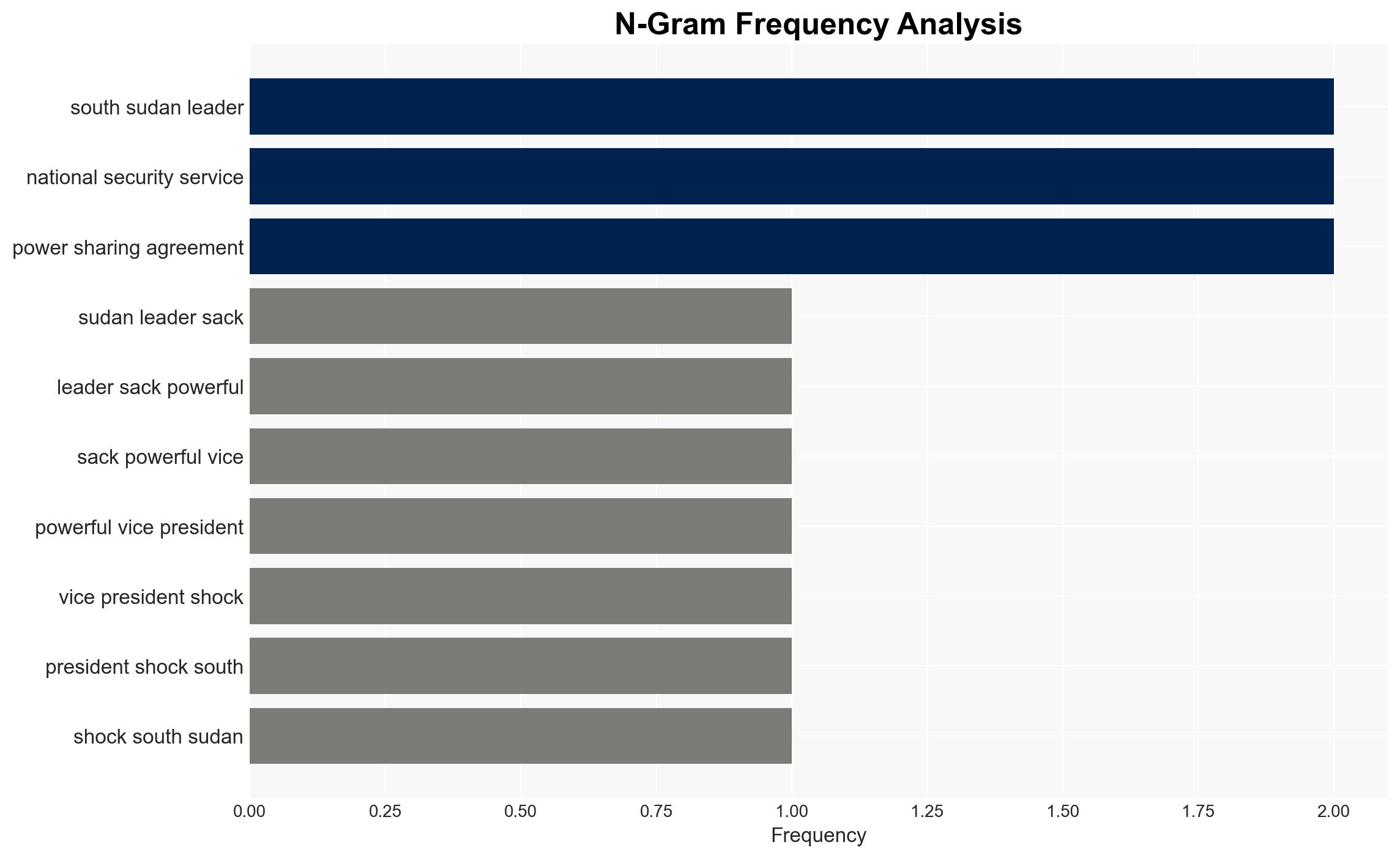South Sudan leader sacks powerful Vice-President Bol Mel – BBC News
Published on: 2025-11-13
AI-powered OSINT brief from verified open sources. Automated NLP signal extraction with human verification. See our Methodology and Why WorldWideWatchers.
Intelligence Report: South Sudan leader sacks powerful Vice-President Bol Mel – BBC News
1. BLUF (Bottom Line Up Front)
The dismissal of Vice-President Benjamin Bol Mel by South Sudan’s President Salva Kiir may signal an internal power consolidation move or a response to corruption allegations. The most supported hypothesis is that this action is part of a strategic maneuver by Kiir to strengthen his political control amidst fears of instability and potential civil unrest. Confidence Level: Moderate. Recommended action includes monitoring political developments closely and engaging with regional partners to promote dialogue and stability.
2. Competing Hypotheses
Hypothesis 1: President Kiir’s dismissal of Bol Mel is a strategic move to consolidate power and eliminate potential rivals within the government.
Hypothesis 2: The dismissal is primarily a response to allegations of corruption and is intended to address internal and external pressures for reform.
Evidence supporting Hypothesis 1 includes the timing of the dismissal amidst political instability and the history of power struggles within the SPLM. Evidence for Hypothesis 2 includes Bol Mel’s previous sanctions for alleged corruption and the need to maintain international credibility. Hypothesis 1 is more likely given the broader context of political maneuvering and the lack of concrete evidence of reform-driven motives.
3. Key Assumptions and Red Flags
Assumptions include the belief that Kiir’s actions are primarily politically motivated and that Bol Mel’s dismissal will not immediately destabilize the government. Red flags include the potential for internal dissent within the SPLM and the risk of escalating tensions with opposition groups. Deception indicators could involve misrepresentation of the reasons for dismissal to mask underlying power struggles.
4. Implications and Strategic Risks
The dismissal could lead to increased political fragmentation and potential violence if factions within the SPLM or opposition groups perceive this as a threat to their power. Economic risks include potential disruptions to oil production if instability escalates. Information warfare risks involve the potential for misinformation campaigns by various factions to influence public perception and international opinion.
5. Recommendations and Outlook
- Engage with regional organizations like the African Union to facilitate dialogue between political factions in South Sudan.
- Monitor the situation closely for signs of escalating violence or political fragmentation.
- Best Case: Political stability is maintained, and the government uses this opportunity to implement genuine reforms.
- Worst Case: The dismissal triggers a power struggle leading to renewed civil conflict.
- Most Likely: Short-term political instability with potential for longer-term power consolidation by Kiir.
6. Key Individuals and Entities
Salva Kiir, Benjamin Bol Mel, SPLM (Sudan People’s Liberation Movement), Riek Machar.
7. Thematic Tags
National Security Threats
Structured Analytic Techniques Applied
- Cognitive Bias Stress Test: Expose and correct potential biases in assessments through red-teaming and structured challenge.
- Bayesian Scenario Modeling: Use probabilistic forecasting for conflict trajectories or escalation likelihood.
- Network Influence Mapping: Map relationships between state and non-state actors for impact estimation.
Explore more:
National Security Threats Briefs ·
Daily Summary ·
Methodology





